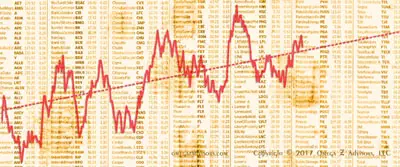3 Personal Traits Tainting the Forecasts of Financial Analysts
Investors expect the forecasts of financial analysts about companies to be rooted in data and objectivity. In fact, we often hear that basing decisions on data goes a long way to removing emotions from them.
Here’s the problem though. While data might be objective, interpreting it is not. Any set of data can cause debate as to what it’s saying. That opens the door to biases.
In-Group Bias (Homophily)
Researchers took a look at one such bias called in-group or homophily. In short, it says people favor those similar to them and disfavor those dissimilar. For example, take a person’s work. Those who see the person similar to them will tend to rate his work higher than those who see him as dissimilar.
As for the forecasts of financial analysts, the link is between their own traits and those of a company’s CEO. Homophily says the more a financial analyst sees the CEO in himself, the more likely he will give that company a good forecast.

The forecasts of financial analysts have biases baked into them that taint expected return.
Three Traits Tainting Forecasts
The research found three such traits: gender (male/female), ethnicity (domestic/foreign) and political orientation (Republican/Democrat). Thus, since most analysts and CEO’s are male, Republican and have American-sounding names, the consensus estimate for their firms will tend to be good.
However, when the results come in, companies headed by women, foreigners, nonwhites and non-Republicans are more likely to beat consensus expectations. That’s because most analysts are dissimilar to them. As a result, as a group they discount underestimate them.
To Better Forecasts of Financial Analysts
Even though this study dealt with forecasts of public companies, the in-group bias can affect those of private ones too. After all, the bias is with humans, not with structures. That means the traits of the analysts and executives are likely just as key as the forecasts themselves.
For example, it makes sense not to have an analyst who is a good friend of the CEO to do a forecast. Likewise, it could make sense not to have one done by an analyst who is too similar either.
In-group bias extends beyond gender, ethnicity and politics as cited in this study. It can include similar degrees, hometowns, colleges, incomes, hobbies, activities, and many others. That means problems with the forecasts of financial analysts are more likely the norm than the exception.
Related Reading and Listening:
- In-Group Bias in Financial Markets Sima Jannati and Alok Kumar, University of Miami, Alexandra Niessen-Ruenzi, University of Mannheim, and Justin Wolfers, University of Michigan.
- “How Biases Affect Stock Analyst Predictions,” NPR (audio and transcript)
- “Study Finds Stock Analysts’ Biases Are Showing,” Wall Street Journal Podcast
- “Stock Analysts’ Biases Are Showing, a Study Finds,” Wall Street Journal Article


